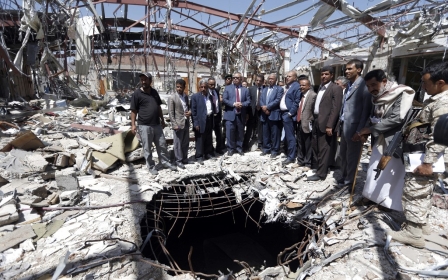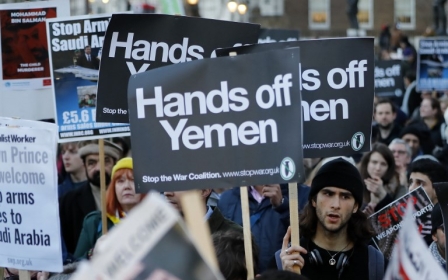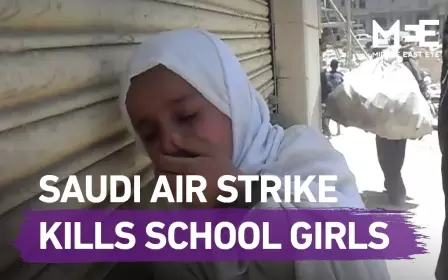Yemen war: Closed-door hearing on UK-Saudi arms sales begins in London
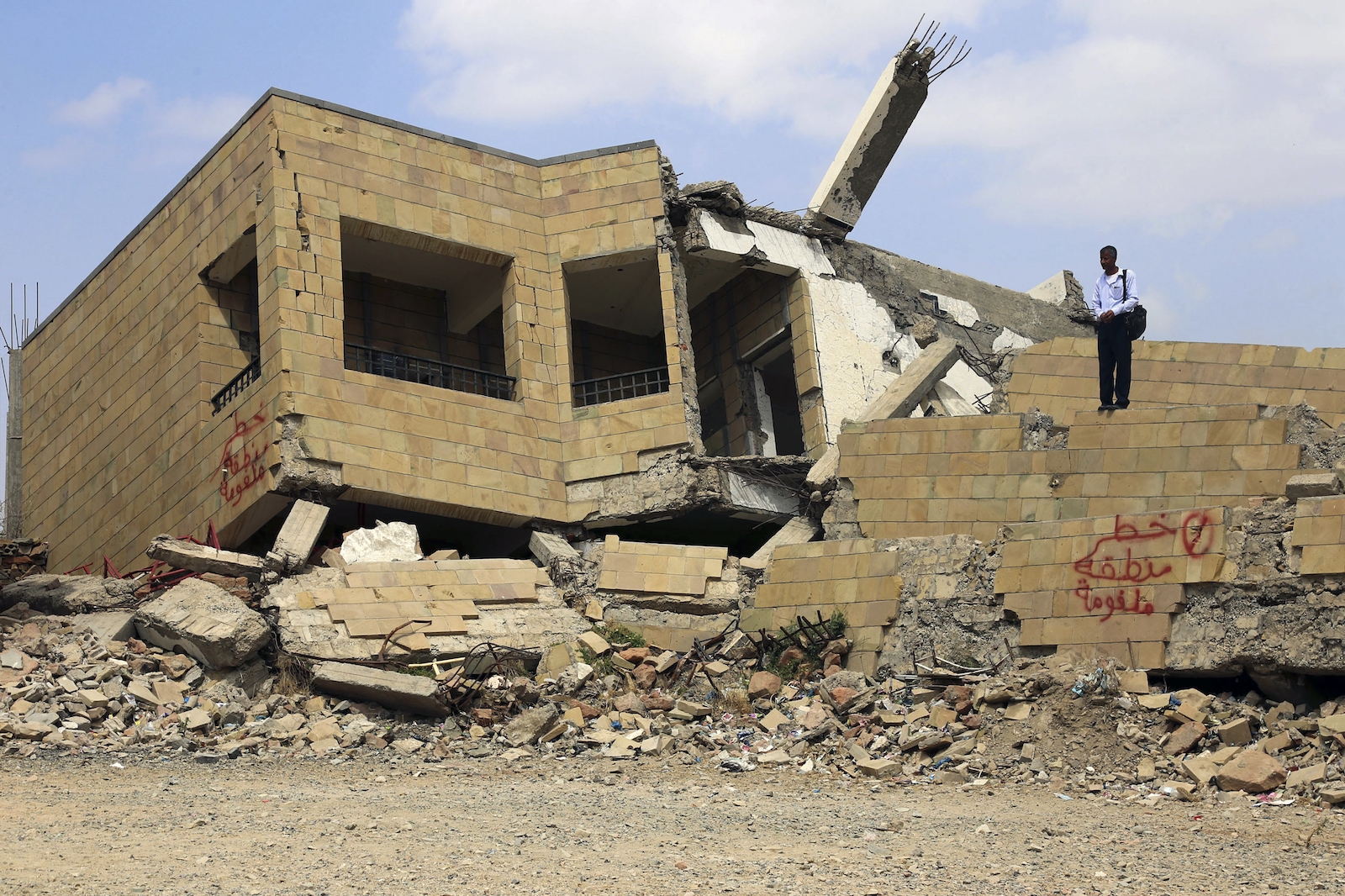
A London court that is hearing a challenge to the UK's continuing arms deals with Riyadh has begun sitting in secret, amid unconfirmed reports that British troops have been operating covertly in Yemen to direct Saudi air strikes.
Lawyers representing the Campaign Against Arms Trade (CAAT), a British advocacy group, are arguing that continuing arms exports to Saudi Arabia are unlawful because the weapons may be used to target civilians in Yemen in breach of international humanitarian law.
The UK government's lawyers deny this, saying the British military has access to wider sources of information than the NGOs that are expressing concern about the way the war is being waged.
New MEE newsletter: Jerusalem Dispatch
Sign up to get the latest insights and analysis on Israel-Palestine, alongside Turkey Unpacked and other MEE newsletters
Describing this information as sensitive, the government lawyers said it could only be referred to in detail in a "closed" hearing.
This began on Wednesday once the public, the press and some lawyers had been excluded from court.
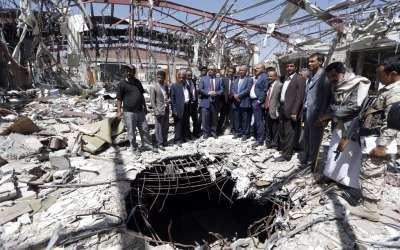
Last month a London newspaper reported that British special forces were operating covertly in Yemen as forward air controllers for the Saudi air force.
The Mail of Sunday reported that five of the soldiers had been wounded in fighting with Iranian-aligned Houthi forces.
The Ministry of Defence has refused to confirm or deny the report. "We don't comment on special forces," a spokesperson said.
However, a foreign office minister, Mark Field, told members of the UK parliament that he was sure that the report had been "well sourced".
The wounded men were reported to be members of a unit that also included medics, translators and soldiers who were training Yemeni troops.
Middle East Eye understands that British special forces have had an almost-continuous presence in Yemen since the 9/11 attacks in the United States in 2001. For some of this period, the special forces' presence is said to have been limited to four-man teams.
The Mail on Sunday reported that there is now a 30-strong British special forces unit based in Saada province in the north of Yemen.
The British government has confirmed that 17 of the country's military personnel are "embedded" within Saudi Arabia's armed forces, including three who are serving in the Saudi Air Operations Centre.
The UK has licensed at least £4.7bn ($6.15bn) worth of arms to Saudi Arabia since Riyadh formed a coalition of Gulf states to intervene in Yemen's civil war in March 2015. These include aircraft, bombs, missiles and components, and technical support.
Human Rights Watch estimates that around 6,900 civilians have been killed since the Saudi intervention, while the charity Save the Children says that as many as 85,000 children have died from hunger or disease as a result of the famine that has gripped the country.
Half of the country's 22 million people have insecure food supplies and the country is experiencing the worst cholera outbreak in modern history.
Civilian casualties
CAAT says there is a wealth of evidence to show that civilians are suffering disproportionately as a consequence of air strikes by the Saudi-led coalition.
A number of factories, a school bus, and several clinics run by Doctors Without Borders (MSF) have been struck, and, in October 2016, 156 people were killed and more than 500 wounded in an air raid on a funeral at a ceremonial hall in Sanaa.
A few minutes after the hall was struck a first time, it was hit again, killing a number of rescuers.
Two weeks ago another hospital was struck in Saada. Seven people - including four children - are reported to have been killed and two people are said to remain unaccounted for.
Most recently, 11 people were killed in an air strike on a residential area of Sanaa on Sunday. An MEE correspondent reporting from the scene found that five of the victims were children who died inside their school.
The court heard that the British government accepts that the Saudis are responsible for the majority of the coalition air strikes on Yemeni targets.
CAAT argues that continuing British arms sales would be in breach of the UK's own export controls, which prohibit the supply of weapons if there is a clear risk of them being used in a serious breach of international humanitarian law.
Four other NGOs and charities have intervened in the case, asking the court to clarify what the term "clear risk" means in the context of the UK's export controls.
Government lawyers argue that the Saudi-led coalition is not deliberately targeting civilians and has processes in place to secure respect for international humanitarian law. They also argue that the UK's arms exports regime contains sufficiently robust controls.
CAAT is attempting to overturn a ruling by a lower court that permitted UK arms exports to continue.
The Court of Appeal has moved into secret on national security grounds.
The closed hearings are being held under the terms of a 2013 piece of legislation, the Justice and Security Act, which was passed after information emerged in open court about the UK's role in the mistreatment of a terrorism suspect, and in consigning British citizens to the US prison at Guantanamo Bay.
The court is expected to hand down its judgment later this year.
Middle East Eye delivers independent and unrivalled coverage and analysis of the Middle East, North Africa and beyond. To learn more about republishing this content and the associated fees, please fill out this form. More about MEE can be found here.


